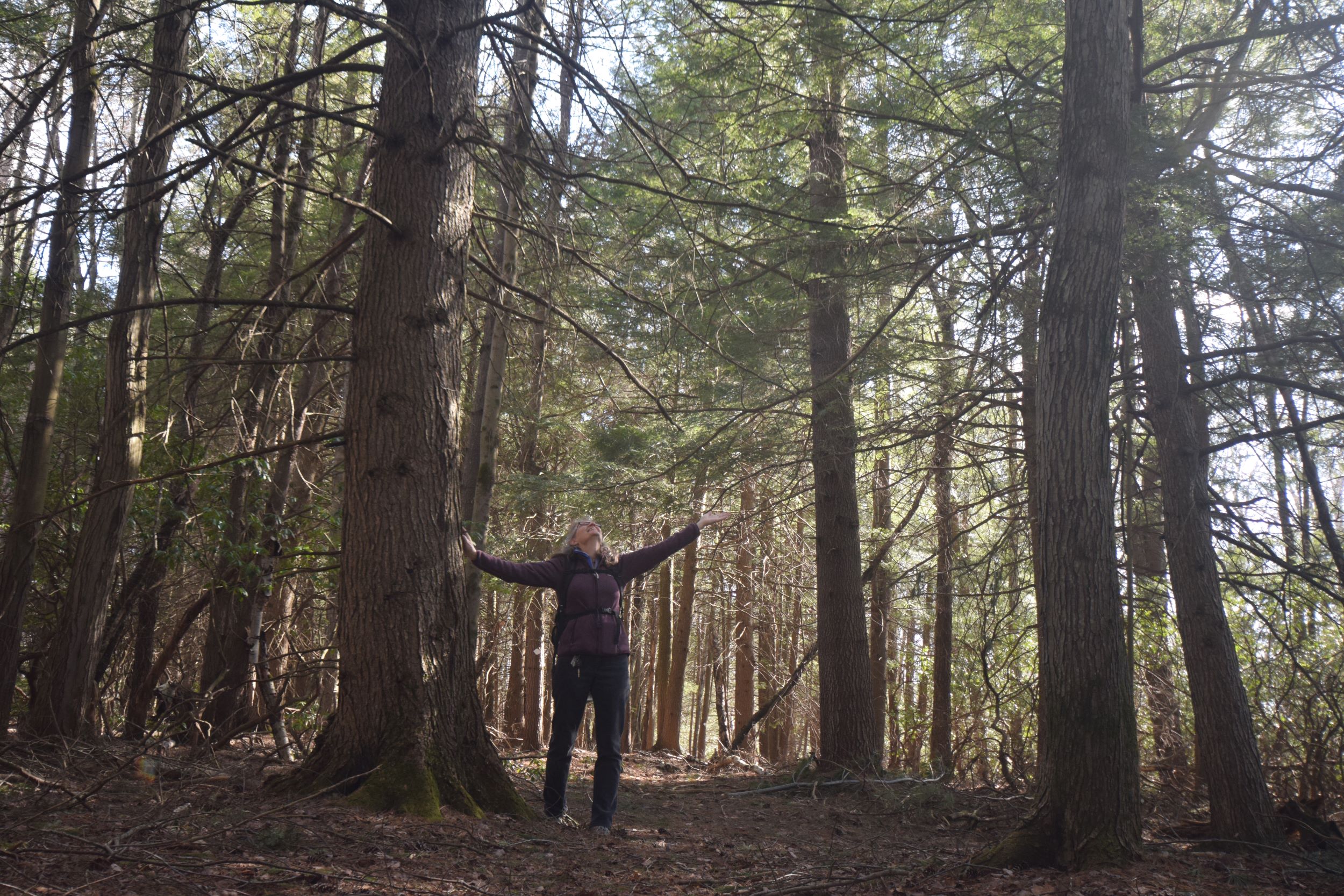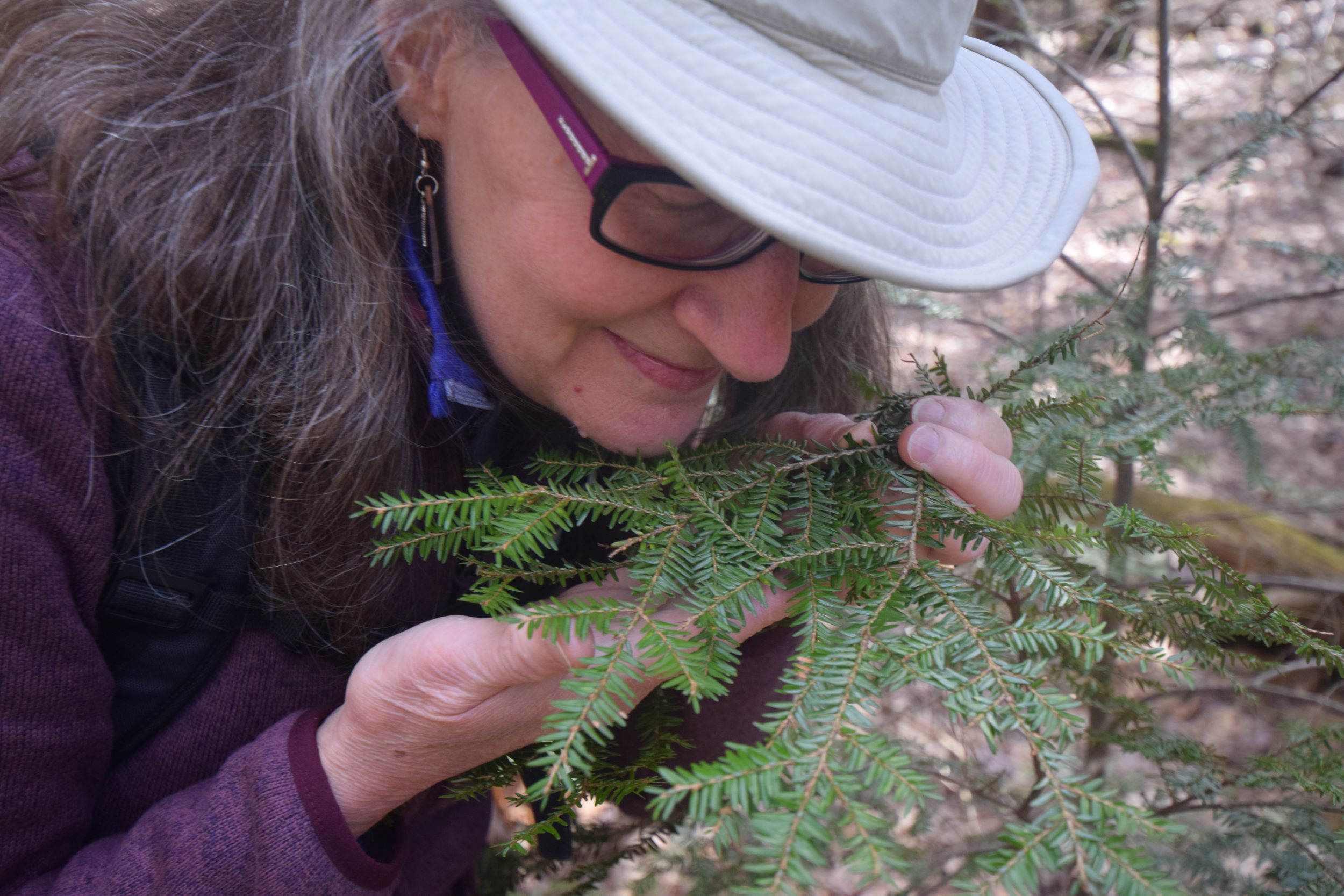Breathe in the Forest Air - It's Good For You
I gently rub the needles of Eastern Hemlock between my fingertips and heel of my hand. Bringing my hand up to my nose I inhale the rich, unmistakable aroma of the forest. I stand with others in the hemlock grove, inhaling deeply and slowly exhaling. I’m participating in a therapeutic hike conducted by folks from Canyon Ranch at Mount Greylock State Reservation. The practice of garnering healthful benefits from the forest started in Japan and is called shinrin-yoku, translated as “forest bathing.” My forest bathing leader tells us that hemlocks are particularly good at producing aromatic phytoncides. That’s the cocktail of chemicals plants send into the air. Produced by plants as a defense against insects, bacteria, and fungi, phytoncides also help trees communicate with one another. Our paltry human noses detect only a tiny fraction of the many volatile organic compounds plants emit. Plants were prominent in the medicine cabinets of many ancient civilizations. Applying essential oils, burning dried leaves, making tinctures, and brewing teas are methods that have been used for thousands of years for therapeutic purposes and mind-altering experiences. Contemporary scientific investigations are confirming plant aromatics affect our bodies and brains. In short, science is now saying, “Yeah, there’s something to this.” Researchers around the world have confirmed various healthful benefits of phytoncides and the forest bathing experience. They are still at work unraveling how – and which – phytoncides affect certain systems in the human body. One benefit of exposure to forest air is improved immunity. Many studies have shown that levels of natural killer cells (a type of lymphocyte that quickly attacks virus-infected cells) are elevated in people exposed to phytoncides. If you are sick, take frequent walks in the woods – not the city street. People who walk in the forest also experience less anxiety and stress. As hikers, we know this. Hiking is an enjoyable activity, and the exercise is healthy. But my hike leader informs us that to get the full benefit of the aromatics in the forest, we should walk slowly. Breathing deeply allows the air more time in the lungs than a more aerobic workout. Walks in the woods have shown to stimulate creativity and improve focus. Some plant chemicals are stimulants while others are relaxants. Aromatherapy utilizes many plant-based oils to produce one effect or the other, even indoors. Office workers in England, who had been breathing rosemary scent all day had better memory recall than colleagues without rosemary. Similar benefits were found of peppermint – workers were more attentive and less fatigued with this scent. Lavender and jasmine have the opposite effect, inducing relaxation and sleep. Spending time in a forest exposes you not only to aromas, but your experience is affected by sight, sound, and touch. An effective forest bathing hike will incorporate all these sensations. As we walk, we are mindful of the earth beneath our feet. We visually examine the bark, leaves and crown of a chosen tree. We sit quietly for some time to listen to forest sounds that are usually masked when hiking in social groups. After my forest bathing hike I am not sure if my blood pressure dropped or my immune system kicked into higher gear or what, but I did finish with a smile on my face. I felt relaxed and grateful for the experience, and I remember even now – a good month later – sights and sounds from the trail. How wonderful to be outdoors, mindful of the beauty and complexities of nature. Get outside often, take your time, breathe deeply. Good health to you.



